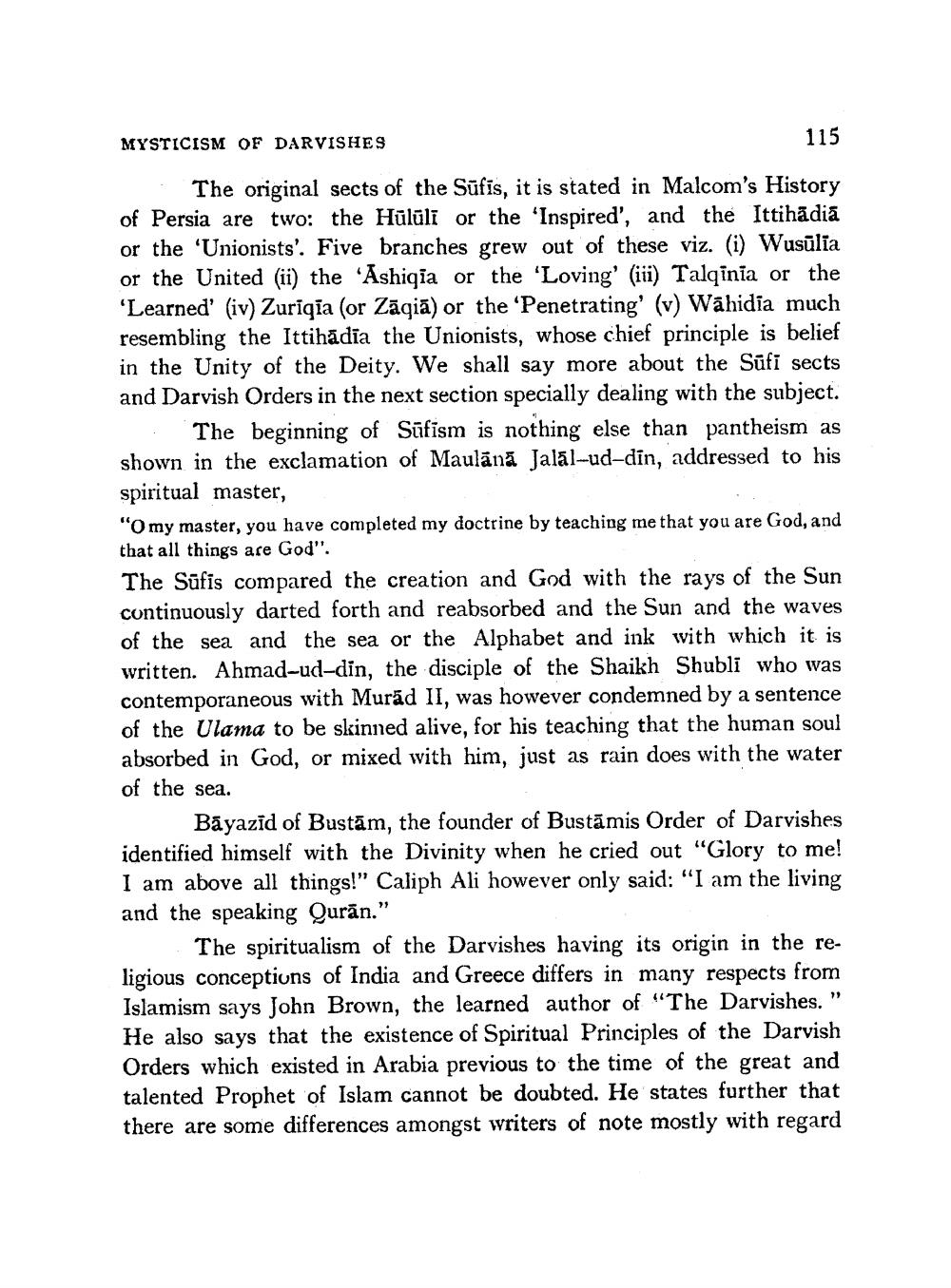________________
MYSTICISM OF DARVISHES
115
The original sects of the Sūfis, it is stated in Malcom's History of Persia are two: the Hülüli or the 'Inspired', and the Ittihādia or the 'Unionists'. Five branches grew out of these viz. (i) Wusūlia or the United (ii) the 'Ashiqia or the 'Loving' (iii) Talqinia or the 'Learned (iv) Zuriqia (or Zāqiā) or the ‘Penetrating' (v) Wāhidia much resembling the Ittihādīa the Unionists, whose chief principle is belief in the Unity of the Deity. We shall say more about the Sūfi sects and Darvish Orders in the next section specially dealing with the subject.
The beginning of Sūfism is nothing else than pantheism as shown in the exclamation of Maulānā Jalal-ud-din, addressed to his spiritual master, "O my master, you have completed my doctrine by teaching me that you are God, and that all things are God". The Sufis compared the creation and God with the rays of the Sun continuously darted forth and reabsorbed and the Sun and the waves of the sea and the sea or the Alphabet and ink with which it is written. Ahmad-ud-din, the disciple of the Shaikh Shubli who was contemporaneous with Murád II, was however condemned by a sentence of the Ulama to be skinned alive, for his teaching that the human soul absorbed in God, or mixed with him, just as rain does with the water of the sea.
Bāyazid of Bustām, the founder of Bustāmis Order of Darvishes identified himself with the Divinity when he cried out "Glory to me! I am above all things!" Caliph Ali however only said: "I am the living and the speaking Quran."
The spiritualism of the Darvishes having its origin in the religious conceptions of India and Greece differs in many respects from Islamism says John Brown, the learned author of "The Darvishes.” He also says that the existence of Spiritual Principles of the Darvish Orders which existed in Arabia previous to the time of the great and talented Prophet of Islam cannot be doubted. He states further that there are some differences amongst writers of note mostly with regard




